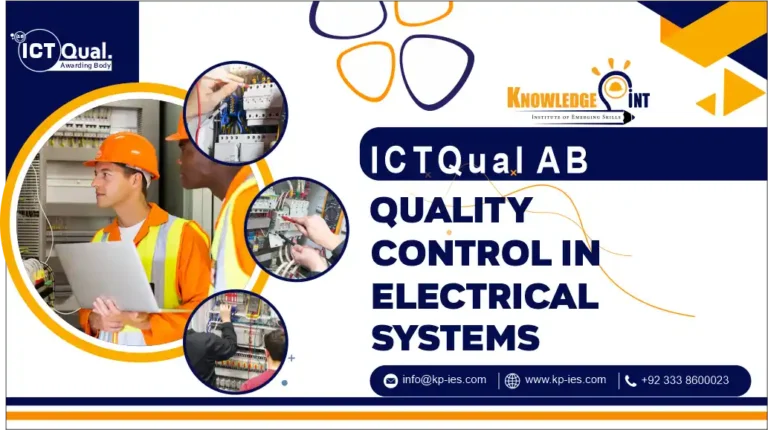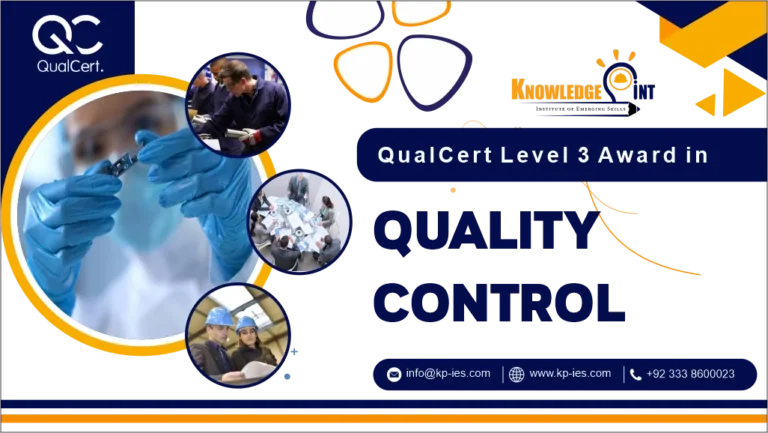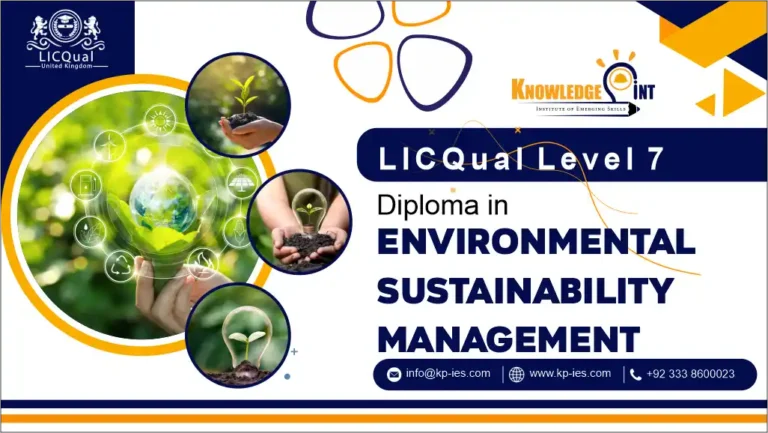In today’s fast-paced and ever-evolving business landscape, having a strong foundation in business management is essential for anyone looking to succeed. Whether you are just starting your career journey or looking to formalize your skills, the OTHM Level 3 Diploma in Business Management is an excellent stepping stone. This diploma provides comprehensive knowledge and practical skills that are crucial for thriving in various business roles and industries.
The OTHM Level 3 Diploma in Business Management is designed to offer students a solid grounding in business principles. This program covers a wide range of topics that are fundamental to understanding how businesses operate and succeed. It prepares students not only for entry-level positions in the business world but also for further studies in business and management.
The OTHM Level 3 Diploma in Business Management is a versatile and valuable qualification that sets the stage for a successful career in business. Whether you aim to further your education or start your professional journey, this diploma provides the knowledge, skills, and opportunities needed to excel. Embrace the possibilities that come with this comprehensive program and unlock your potential in the dynamic world of business management.
Course Overview
The OTHM Level 3 Diploma in Business Management consists of 6 mandatory units which are as follows.
The future progression of the OTHM Level 3 Diploma in Business Management can lead learners towards several pathways, depending on their career goals and aspirations in the field of law and related sectors. Here are some potential avenues of progression:
Communication for Business
- Effective Communication Skills:
- Develop the ability to communicate clearly and professionally in a business context, both verbally and in writing.
- Learn how to tailor communication styles to different audiences and purposes.
- Interpersonal Communication:
- Enhance skills in active listening, giving and receiving feedback, and managing interpersonal relationships in the workplace.
- Understand the importance of non-verbal communication cues and their impact on business interactions.
- Digital Communication Tools:
- Gain proficiency in using various digital communication tools such as email, instant messaging, video conferencing, and collaborative platforms.
- Learn best practices for maintaining professionalism and etiquette in digital communications.
- Presentation Skills:
- Develop the ability to create and deliver engaging and informative business presentations.
- Learn to use visual aids and technology effectively to support communication.
The Business Environment
- Understanding Business Structures:
- Gain knowledge of different types of business structures, including sole proprietorships, partnerships, corporations, and limited liability companies.
- Learn the characteristics, advantages, and disadvantages of each business type.
- External Environmental Factors:
- Analyze external factors that affect businesses, such as economic, political, social, and technological forces (PEST analysis).
- Understand the impact of globalization and international trade on the business environment.
- Internal Environmental Factors:
- Explore internal factors that influence business operations, including organizational culture, management styles, and resource management.
- Learn how businesses develop strategies to respond to internal and external challenges.
- Business Ethics and Corporate Social Responsibility:
- Understand the importance of ethics and corporate social responsibility (CSR) in business practices.
- Learn how businesses can balance profitability with ethical conduct and social responsibility.
People Management
- Human Resource Management:
- Understand the role of human resource management in recruiting, training, and developing employees.
- Learn about performance management, employee relations, and compensation and benefits.
- Leadership and Management Styles:
- Gain knowledge of different leadership and management styles and their impact on team performance and morale.
- Develop skills in motivating, leading, and managing teams effectively.
- Conflict Resolution:
- Learn techniques for managing and resolving conflicts in the workplace.
- Understand the importance of effective communication and negotiation in conflict resolution.
- Employee Development:
- Understand the importance of continuous learning and development for employees.
- Learn how to design and implement training and development programs to enhance employee skills and performance.
Customer Service
- Customer Service Fundamentals:
- Understand the principles of excellent customer service and its importance to business success.
- Learn techniques for delivering high-quality customer service and creating positive customer experiences.
- Customer Relationship Management:
- Gain skills in building and maintaining strong relationships with customers.
- Learn how to use customer feedback to improve products, services, and customer satisfaction.
- Handling Customer Complaints:
- Develop strategies for effectively managing and resolving customer complaints and issues.
- Learn the importance of empathy, active listening, and problem-solving in customer service.
- Measuring Customer Satisfaction:
- Understand methods for measuring and evaluating customer satisfaction.
- Learn how to use customer satisfaction data to drive business improvements and enhance customer loyalty.
Finance in Business
- Basic Accounting Principles:
- Gain an understanding of fundamental accounting principles, including the accounting cycle, double-entry bookkeeping, and financial statements.
- Learn how to record, summarize, and interpret financial transactions and reports.
- Financial Analysis:
- Develop skills in analyzing financial statements to assess business performance and make informed decisions.
- Understand key financial ratios and their significance in evaluating a company’s financial health.
- Budgeting and Forecasting:
- Learn the importance of budgeting and forecasting in business planning and decision-making.
- Develop skills in preparing budgets, financial projections, and variance analysis.
- Financial Management:
- Understand the principles of financial management, including capital budgeting, working capital management, and financing decisions.
- Learn how to manage business finances to achieve strategic objectives and maximize value.
Marketing
- Marketing Fundamentals:
- Understand the basic principles of marketing, including market research, target markets, and the marketing mix (product, price, place, promotion).
- Learn how to develop and implement effective marketing strategies.
- Market Research and Analysis:
- Gain skills in conducting market research to gather and analyze information about consumers, competitors, and market trends.
- Learn how to use market research data to inform marketing decisions and strategies.
- Digital Marketing:
- Understand the principles of digital marketing and its role in modern business.
- Learn how to use digital marketing tools and platforms, such as social media, email marketing, and search engine optimization (SEO), to reach and engage customers.
- Brand Management:
- Learn the importance of branding and brand management in building and maintaining a strong brand identity.
- Develop skills in creating brand strategies and managing brand equity to enhance business reputation and customer loyalty.
These learning outcomes provide a comprehensive framework for students enrolled in the OTHM Level 3 Diploma in Business Management. By mastering these key areas, students will be well-prepared to pursue further education and embark on successful careers in various business roles. Whether aiming to start your own business, join a corporate team, or enhance your professional skills, these competencies are essential for future success in the dynamic world of business management.
Course Benefits of the OTHM Level 3 Diploma in Business Management :
1. Specialized Expertise
- Auditing Proficiency: Gain specialized knowledge and skills in auditing energy management systems according to the ISO 50001:2018 standard.
- Industry Recognition: Earn a globally recognized qualification that demonstrates your proficiency as an energy management systems auditor.
2. Career Advancement
- Expanded Career Opportunities: Qualify for roles such as Lead Energy Auditor, Energy Management Consultant, or Compliance Officer.
- Higher Earning Potential: Enhance your value to employers and increase your earning potential with specialized expertise in energy management auditing.
3. Industry-Relevant Skills
- Practical Application: Acquire practical skills and techniques for planning, conducting, and documenting energy management system audits.
- Effective Communication: Develop communication skills to interact with auditees, audit teams, and stakeholders effectively.
4. Contribution to Sustainability
- Promotion of Energy Efficiency: Play a key role in promoting energy efficiency and reducing environmental impact within organizations.
- Support for Sustainable Practices: Assist organizations in implementing and maintaining energy management systems that support sustainability goals.
5. Quality Assurance
- Compliance Assurance: Help organizations achieve compliance with ISO 50001:2018 requirements and other relevant regulatory standards.
- Risk Mitigation: Identify areas of non-conformance and provide recommendations for corrective actions to mitigate risks.
6. Continuous Professional Development
- Lifelong Learning: Engage in continuous professional development by staying updated with the latest developments and trends in energy management auditing.
- Networking Opportunities: Connect with industry professionals, auditors, and experts, expanding your professional network and opportunities.
7. Organizational Benefits
- Improved Performance: Contribute to the improvement of organizational energy performance through effective auditing and recommendations for continuous improvement.
- Enhanced Reputation: Help organizations build a positive reputation for their commitment to energy management and sustainability practices.
8. Personal Growth
- Leadership Development: Develop leadership skills to effectively manage audit teams, delegate tasks, and ensure audit objectives are met.
- Confidence Boost: Gain confidence in your abilities as an energy management systems auditor through practical training and hands-on experience.
The OTHM Level 3 Diploma in Business Management provides a solid foundation for further education and career development. Upon completing this diploma, graduates have multiple pathways to enhance their knowledge, skills, and professional opportunities. Here are some potential future progressions:
Academic Advancement
- Level 4 and 5 Diplomas in Business Management:
- Progress to higher-level diplomas such as the OTHM Level 4 and Level 5 Diplomas in Business Management. These programs offer more in-depth knowledge and advanced skills in business management, preparing students for higher education or senior roles in business.
- Bachelor’s Degree Programs:
- Pursue undergraduate studies in Business Administration, Management, Marketing, Finance, or related fields. Completing a bachelor’s degree can open doors to more specialized knowledge and higher-level career opportunities. Potential degree programs include:
- BA (Hons) Business Administration
- BSc (Hons) Business Management
- BA (Hons) Marketing
- BSc (Hons) Accounting and Finance
- Pursue undergraduate studies in Business Administration, Management, Marketing, Finance, or related fields. Completing a bachelor’s degree can open doors to more specialized knowledge and higher-level career opportunities. Potential degree programs include:
- Professional Certifications:
- Enhance your skills and knowledge by obtaining professional certifications in specific areas of business. Examples include:
- Certified Management Accountant (CMA)
- Certified Financial Planner (CFP)
- Project Management Professional (PMP)
- Chartered Institute of Marketing (CIM) qualifications
- Enhance your skills and knowledge by obtaining professional certifications in specific areas of business. Examples include:
- Higher National Diplomas (HND):
- Enroll in Higher National Diplomas (HND) in Business or related fields to gain practical and theoretical knowledge, preparing for both employment and further study at the bachelor’s level.
Professional Development
- Entry-Level Business Positions:
- Start your career in various entry-level roles in the business sector to gain practical experience and build a professional network. Potential positions include:
- Administrative Assistant
- Marketing Assistant
- Sales Representative
- Customer Service Associate
- Junior Analyst
- Start your career in various entry-level roles in the business sector to gain practical experience and build a professional network. Potential positions include:
- Internships and Apprenticeships:
- Gain hands-on experience and industry exposure through internships and apprenticeships with businesses, corporations, and non-profit organizations. This practical experience can be invaluable for career development.
- Networking and Industry Engagement:
- Join professional associations and networks in the business sector to connect with peers, mentors, and potential employers. Examples include:
- Chartered Management Institute (CMI)
- Institute of Directors (IoD)
- Association of Business Executives (ABE)
- Join professional associations and networks in the business sector to connect with peers, mentors, and potential employers. Examples include:
- Short Courses and Workshops:
- Participate in short courses and workshops to enhance specific skills such as digital marketing, data analytics, leadership, and entrepreneurship.
Specialized Career Paths
- Business Administration and Management:
- Develop a career in business administration or management, focusing on overseeing business operations, improving efficiency, and leading teams.
- Marketing and Sales:
- Specialize in marketing or sales, working on strategies to promote products and services, attract and retain customers, and drive revenue growth.
- Finance and Accounting:
- Pursue a career in finance or accounting, focusing on managing financial records, analyzing financial performance, and ensuring financial compliance.
- Human Resources:
- Specialize in human resources, working on recruitment, employee development, performance management, and organizational culture.
- Entrepreneurship:
- Use the knowledge and skills gained from the diploma to start and manage your own business, leveraging entrepreneurial insights and business acumen.
The OTHM Level 3 Diploma in Business Management serves as a gateway to numerous academic and professional opportunities. By continuing your education, gaining practical experience, and pursuing specialized career paths, you can build a successful and fulfilling career in the dynamic world of business. Whether you aim to become a business leader, a marketing expert, a financial analyst, or an entrepreneur, this diploma provides the foundational knowledge and skills necessary to achieve your goals and excel in your chosen field.







